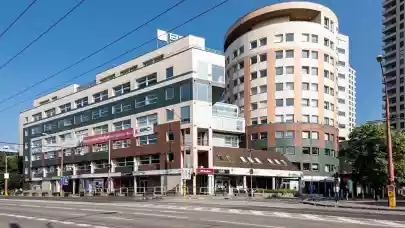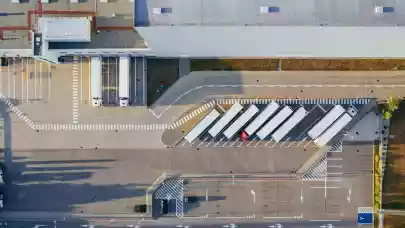
Premium rents in Prague to rise and interesting incentives from landlords are expected. There is also a growing interest in office rents in Brno, which is responding to the growth in rents over the past two years. Premium rents also grew slightly in Ostrava. Leasing activity in Bratislava is keeping pace with new construction and, together with Vienna, is expecting a recovery. In Warsaw, upward pressure on premium rents will grow, but there is likely to be an easing of existing incentives for tenants. Budapest is gradually recovering from the covid crisis. Rents will remain stable this year, reports CBRE.
European markets, including the Czech one, entered the new year with a renewed appetite for new office space. And people are already gradually returning to their current ones from home office work. Therefore, we can expect to see a further shift towards a hybrid working model in the year, along with a greater demand for flexible solutions and high-quality indoor environments. The shared office will remain indispensable, even if the way it is used will change. The reasons have already been proven by time and personal experience: it is where company culture is created, values are reinforced and it is a place for spontaneous interaction, communication and collaboration. However, what conditions are currently awaiting tenants in the country or neighbouring countries? CBRE offers comparisons in terms of new construction, rent levels and occupancy in office properties.
Prague, Brno or Ostrava?
The Prague office market consists of 3.73 million sqm. Last year, only 57,000 sqm was newly completed, however, 15 projects are currently under construction (a total of 73,000 sqm is to be completed this year, of which 30% is pre-let). Last year, 208,000 sqm of office space was leased, representing a 23% year-on-year increase in leasing activity. The vacancy rate has risen to 7.8% in recent months, leaving just under 300,000 sqm of vacant office space available. This year the growth rate will slow down. "At the same time, the lack of premium projects on the market can be expected to lead to rental growth. They are currently between €23.5 and €24 per sqm per month. On the other hand, the Prague office market is gradually becoming a tenant's market, so landlords are increasingly offering various incentives such as rent holidays or higher allowances for equipment in case of extending existing contracts," comments Helena Hemrová, Head of Office Leasing at CBRE.
Brno, the second-largest market, has successfully established itself as a sought-after office market between Prague, Vienna and Bratislava thanks to the presence of a number of IT companies and shared service centres. One of the reasons for this strong presence of technology companies is Brno's universities, which attract local and international students and create a highly-skilled but still affordable workforce. This is why the market is developing steadily despite the pandemic. At the moment, another 66,600 sqm is under construction in addition to the approximately 640,000 sqm currently under construction. The vacancy rate increased slightly to 11.8% last year. As for rents, they have been rising over the past two years, due to rising construction costs and a new project in the city centre that has set a new threshold. As a result, premium rents are currently between €15 and €16 per sqm per month. By comparison, the total office space in Ostrava amounts to 219,100 sqm, with a single project currently under construction with 20,600 sqm of lettable space. Leasing activity last year was comparable to the previous year and the vacancy rate reached 5.9%. There is 13,000 sqm of vacant offices available for immediate occupation. Premium rents in Ostrava rose slightly last year from €12.50 to €13 per sqm per month.
Leasing activity in Bratislava keeps pace with new construction. Rents remain stable
Last year, the Bratislava market grew by 63,300 sqm of office space, an increase of 3.9% year-on-year. The vacancy rate has gradually increased in recent years (from 6% in 2018 to 11.7% last year), but the growth rate started to slow down before last year. The past year, which was the most successful year ever in terms of leasing activity, played a major role in this. A total of 240,000 sqm of leased space represents a year-on-year increase of 34%. Almost a quarter of the new tenants came from the IT segment. Surprisingly, the public sector came in second place with 46,300 sqm of leased space: 19.37%, a doubling compared to 2020. Six new projects are currently under construction with a total of 138,000 sqm of lettable space: 25,000 sqm will be completed this year and 113,000 sqm a year later. There is currently around 233,000 sqm of vacant office space on the market, which corresponds to a vacancy rate of 11.70%. Last year was a harbinger of a recovery that will continue this year. We expect demand to remain strong and the vacancy rate to gradually decline towards 9%, also due to the postponement of the completion of some projects to 2023," says Simon Orr, Head of Tenant Representation in CBRE's Office Leasing team.
Warsaw has seen a record number of new office completions. Rents rise
Last year 324,600 sqm of new offices were completed in the Polish capital, the most since 2016. At the same time, there was a recovery in demand, although leasing activity has still not reached pre-recession levels. A total of 646,500 sqm was leased, up 6% year-on-year. On the other hand, the large number of new completions (even though 70% of the offices were already pre-leased) caused an increase in vacancy. "A total of 778,400 sqm of office space remains vacant, which corresponds to a vacancy rate of 12.66% (up 2.8 percentage points year-on-year). However, the pace of new construction will slow down significantly in the coming years. This fact, combined with rising demand, will cause vacancy rates to gradually start to fall, by up to 4 percentage points over the next three years. At the same time, this will put upward pressure on premium rents, which are currently holding at €25.5 per sqm per month. In addition, the various incentives for tenants from landlords, which have been the order of the day so far, will be fading," says Jana Prokopcova, head of research at CBRE.
The Hungarian capital is gradually recovering from the covid crisis. Rents will not increase significantly
Last year, the Budapest market recorded the lowest volume of newly completed offices since 2013: a total of 44,500 sqm, down 81% year-on-year. There were only two buildings completed during the first half of the year (Evosoft HQ and BudaPart City). On the other hand, there were still reverberations of the covid crisis. A number of projects have been postponed to this year, so the current forecast is for 302,600 sqm of new office space to be completed. This would be the second-best result since 2009. However, only time will tell the reality, as some projects are scheduled for completion in the last quarter of this year, so they may still be delayed. Leasing activity reached 365,800 sqm last year, up 9% y-o-y. The main drivers of demand were companies in the technology and telecoms sectors, as well as manufacturing and energy. "The vacancy rate stabilised at 9.2% last year (after a significant increase in 2020). With several new projects scheduled for completion and moderate occupier demand, we expect vacancy rates to rise further this year - but not at the same rate as during the peak of the pandemic. It could reach 11-12% by the end of 2023. Despite the aforementioned circumstances, rents for premium properties remain stable at €15.9 per sqm per month. At the same time, we expect that there will be no significant fluctuations in rents this year either. However, incentives for potential tenants will start to appear to an increased extent," says Jana Prokopcová.
What does Vienna have to say? Landlords are pulling the long end of the stick here. Rents are expected to rise further
Vienna's office market saw its lowest ever leasing activity last year, with "just" 169,000 sqm of office space leased. Companies have been reassessing their existing strategies and leases, causing several planned decisions to be postponed. However, the market is set for a recovery this year. According to CBRE experts, in the second half of the year, in particular, several pre-lease agreements for projects scheduled for completion in 2023 and 2024 can be expected. More and more companies will lean towards the hybrid model of work and prefer offices with larger and flexibly designed spaces. However, these are in short supply in Vienna. 130,000 sqm of office space is due to be completed this year, 77% of which is in newly renovated buildings in the city centre. More than three-quarters of these are already pre-let. "In Vienna, it is the property owners who have the upper hand in negotiating contractual obligations. This has led to rising rents and reduced incentives for new tenants in the past. Even the coronavirus pandemic has not fundamentally changed this. Average rents in premium offices have risen to as much as € 26 per sqm per month in recent years. And with a low vacancy rate of around 4% and a limited number of new buildings due to be completed shortly, the upward pressure on rents will continue," concludes Jana Prokopcová.



